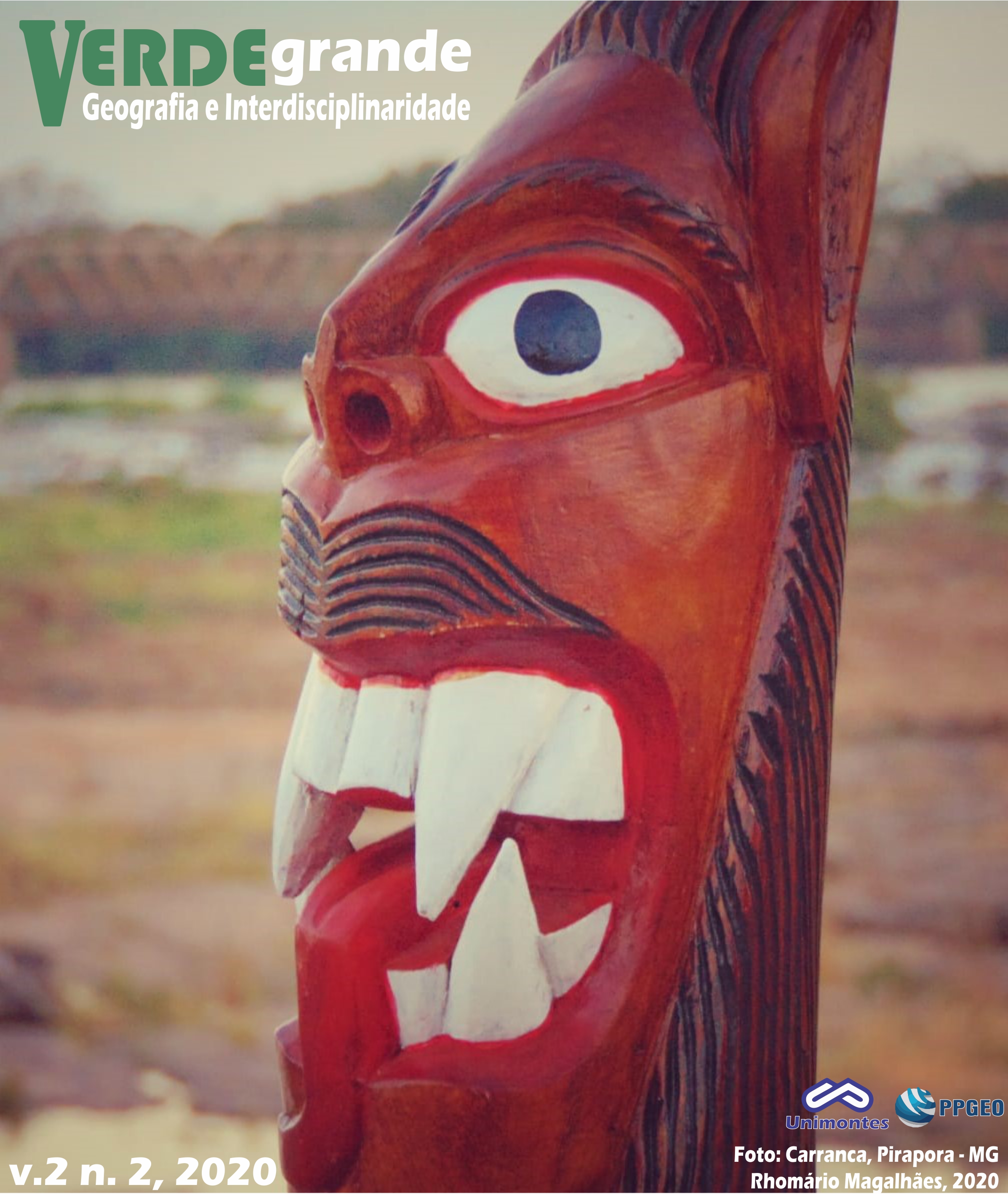Conceptual reflections in/from the contemporary public free space: discussions between their uses in the geographic and architectural sciences
DOI:
10.46551/rvg2675239520202114129Keywords:
Space. Public free space. Geography. Architecture.Abstract
Geography and Architecture are two areas of knowledge that focus their studies on the same object: space. In order to understand public open spaces in the contemporary city, the way in which each science epistemologically distinguishes the concept of space was adopted as a starting point. The objective was to understand, through a more comprehensive view, to understand the way free public spaces are formed and conformed in cities, due to their peculiar dynamics. Based on an integrated approach, analysis from the point of view of two fields of knowledge was important, as it broadened and deepened the knowledge about the conformation of public free space today. Considering that the architectural space is a void and the geographical space is the possibility of action and relationship between objects and things in time, the essence of spatial production is arrived at: the place. It is noted, therefore, the importance of a reflection of the two sciences for the analysis and construction of public spaces in the contemporary city.
Downloads
References
ALMEIDA, A. Sustentabilidade dos espaços públicos na reabilitação de núcleos urbanos: questão das praças. Lisboa: Lisboa FAL., 2006. Disponível em: <http://www.revistas.usp.br/paam/article/view/> . Acesso em: 18 dez. 2018.
BORTOLO, Carlos Alexandre de. A dinâmica dos espaços públicos de lazer em cidades da aglomeração urbana de Londrina. 2015. Tese de doutorado, Centro de Ciências Humanas, Letras e Artes - departamento de geografia, Universidade Estadual de Maringá Londrina, Paraná. 2015, 232p.
CARLOS, Ana Fani Alessandri. Espaço-tempo da vida cotidiana na metrópole. São Paulo: FFLCH /USP 2017.
CORRÊA, Roberto Lobato. O Espaço Urbano. 3ª Ed. São Paulo: Editora Ática S.A, 1998.
GEHL, Jan. Cidades para Pessoas. São Paulo: Perspectiva, 2013.
INDOVINA, F. O Espaço público-tópicos sobre a sua mudança. Revista Cidades, Comunidades e Territórios, Lisboa, Instituto Superior de Ciências do Trabalho e da Empresa (ISCTE), n.5, p.119-123, 2002. Disponível em: <http://www.revistas.usp.br/paam/article/view>. Acesso em: 18/12/2018.
JACOBS, Jane. Morte e Vida de Grandes Cidades. São Paulo: Editora WMF Martins Fontes, 2009.
LEFEBVRE, Henry. The Production of Space. Trad. D. Nicholson-Smith Oxford: Basil Blackwell, 1991.
Magnoli, M. (2006). Espaço livre - objeto de trabalho . Paisagem E Ambiente, (21), 175-197. Disponível em: <https://doi.org/10.11606/issn.2359-5361.v0i21p175-197>. Acesso em: 20 jan. 2019.
MALARD, Maria Lúcia. As aparências em arquitetura. Belo Horizonte: Editora UFMG, 2006.
MOREIRA, Ruy. Pensar e ser em Geografia. São Paulo: Contexto, 2007.
ROCHA, Bruno Massara. Conceitos sobre a arquitetura primitiva e derivações. Artigo Online. Disponível em: . Acesso em: 03 fev. 2018
RONIK, Raquel. O que é cidade. São Paulo: Brasiliense, 2012.
SANTOS, Milton. A natureza do espaço. 3 ed. São Paulo: Hucitec, 2006.
SERPA, A. Espaço público e acessibilidade: notas para uma abordagem geográfica. Revista GEOUSP – Espaço e Tempo, São Paulo, n.15, p. 21-37, 2004. Disponível em: <http://www.revistas.usp.br/geousp/article/view/123865>. Acesso em: 05 jan. 2019.
Downloads
Published
How to Cite
Issue
Section
License
Copyright (c) 2020 Christiana Nogueira, Carlos Alexandre de Bortolo

This work is licensed under a Creative Commons Attribution-NonCommercial-NoDerivatives 4.0 International License.
You are free to:
Share — copy and redistribute the material in any medium or format
The licensor cannot revoke these freedoms as long as you follow the license terms.
Under the following terms:
Attribution — You must give appropriate credit, provide a link to the license, and indicate if changes were made. You may do so in any reasonable manner, but not in any way that suggests the licensor endorses you or your use.
NonCommercial — You may not use the material for commercial purposes.
NoDerivatives — If you remix, transform, or build upon the material, you may not distribute the modified material.
No additional restrictions — You may not apply legal terms or technological measures that legally restrict others from doing anything the license permits.


















 Esta obra está licenciada com
Esta obra está licenciada com 